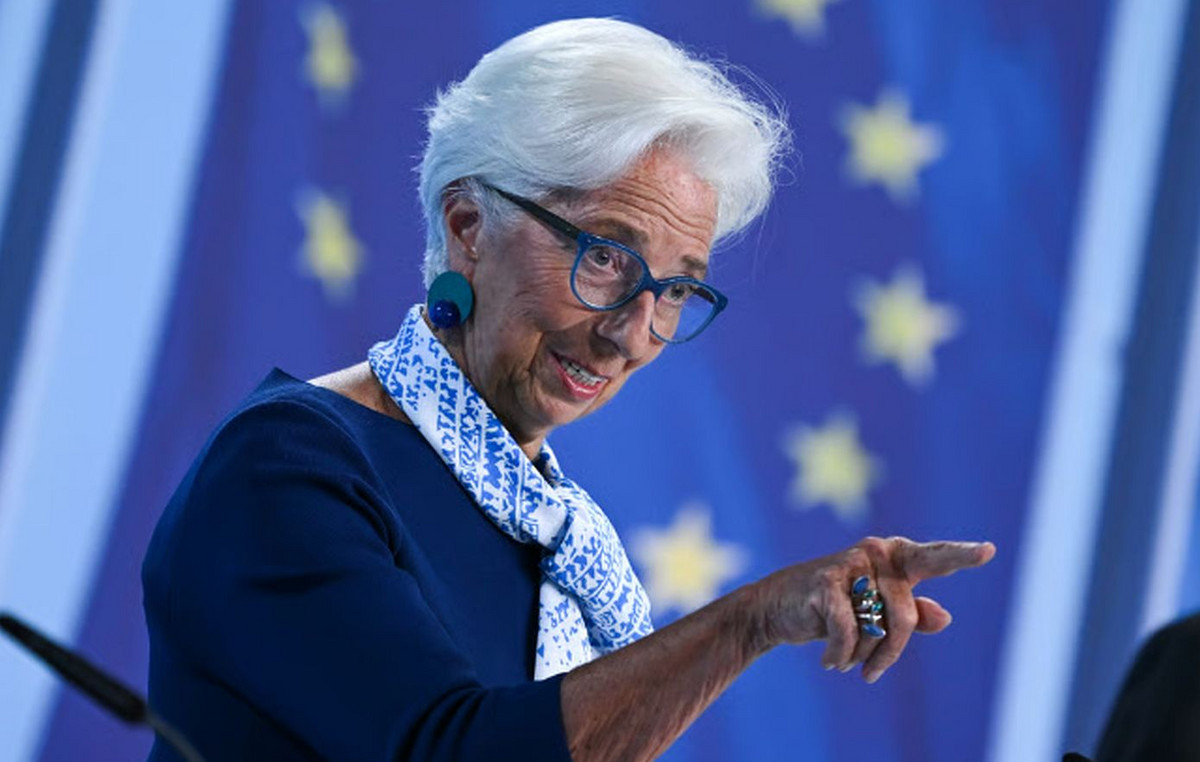Joe Biden’s uneven debate performance immediately sparked new questions from Democrats worried about whether he would drop out of the presidential race.
It wouldn’t be an easy process, given that Biden is already the presumptive Democratic nominee and the overwhelming choice of primary voters. He faced little opposition during the primary season, and the fact that he won nearly all of the party’s delegates means it’s highly unlikely he’ll be forced out of the race against his will.
“We are not in the 60s. Voters choose the candidate. He is the nominee,” said the analyst at CNN and Democratic strategist David Axelrod, reacting to Biden’s performance in Thursday night’s (27) debate on CNN .
This current primary system, which empowers primary voters over party bigwigs, essentially arose out of discontent after Democrats chose Vice President Hubert Humphrey as their candidate in 1968. Even after President Lyndon Johnson withdrew from the presidential race that year, recognizing his growing popularity and opposition to the Vietnam War, Humphrey represented a continuation of Johnson’s Vietnam policy at the Democratic National Convention in Chicago. Violence erupted when protesters clashed with police as Humphrey accepted the nomination.
Things would be very different in 2024 if Biden decides to drop out of the race, although the Democratic convention will return to Chicago in August.
As we first wrote in February, if the leading candidate dropped out of the campaign after most of the primaries or even during the convention, individual delegates would need to select the party’s candidate on the convention floor (or, potentially, during a virtual vote).
This would draw attention to the normally niche question of who these real delegates are. The Democratic Party has set a June 22 deadline for states to select the more than 3,900 delegates — almost all currently pledged to Biden — allocated as part of the primary process.
These delegates are not just committed to voting for Biden; they are also endorsed by his campaign. Thus, although a majority of convention delegates could decide to choose a new candidate, doing so would require massive defections from the president’s own supporters. It also means that, if Biden dropped out of the race, Biden’s supporters would largely be responsible for choosing his replacement.
Who could replace Biden?
One might assume, for example, that Vice President Kamala Harris would be one of the leading candidates to be on the ballot in such a scenario. But there would be other potential candidates who have previously argued they could run a more effective campaign against former President Donald Trump.
Would someone like California Gov. Gavin Newsom — who offered Biden his unconditional support after Thursday’s (27) debate — challenge Harris at the convention? Choosing a replacement could be divisive and ugly. It would be up to the delegates to decide, in a series of votes after frenzied lobbying, who to pick.
On the Democratic side, there’s another group to consider: the “superdelegates,” a group of about 700 senior party leaders and elected officials who are automatically delegates to the convention based on their standing. Under normal party rules, they are not allowed to vote on the first ballot if they can win the nomination, but they are free to vote on subsequent ballots.
What if a candidate dropped out of the race after the convention?
It would take a drastic event for a candidate to drop out of the race in the few months between a party’s nominating convention in the summer and the general election in November.
Democrats and Republicans have slightly different methods for dealing with this possibility. You might think that the end result would probably be that the running mate would run in the general election, but that’s not necessarily a given.
Democrats – The Democratic National Committee has the power to fill a vacancy on the national ticket after the convention in accordance with party rules, after the party chairman consults with Democratic governors and congressional leadership.
Republicans – If a vacancy occurs on the Republican side, the Republican National Committee may reconvene the national convention or select a new candidate itself.

Would the running mate automatically become the nominee?
An in-depth Congressional Research Service memo also notes that if a sitting president becomes incapacitated after winning the party’s nomination, the 25th Amendment would elevate the vice president to the presidency, but party rules would determine who the party’s nominee would be.
Neither party, according to the CRS, demands that the vice president of the presidential candidate be elevated to the head of the ticket, although this is obviously the most likely scenario.
Has any candidate dropped out of the race after the convention?
In modern times, according to the CRS, the Democrat who ran for vice president in 1972, Senator Thomas Eagleton, was forced to resign after the convention after it was discovered that he was being treated for mental illness. (1972 was a very different time! Today, thankfully, there is no stigma associated with mental health).
In fact, the DNC needed to call a meeting to affirm Sargent Shriver as Democratic candidate George McGovern’s running mate.
What if a president-elect became incapacitated after the election?
If a president-elect were to die, timing would again be important.
According to the Constitution, it is the voters gathered in the state capitals who technically vote for the presidency.
The CRS memo, which cites several congressional hearings on the issue, suggests that it would clearly make sense for a vice president-elect to simply assume the role of president-elect, but the law itself is murky.
Under the 20th Amendment, if a president-elect dies, his running mate, the vice president-elect, becomes president.
There may be some doubt, for example, about when exactly a person becomes president-elect. Will it be after the electors’ meeting in December, or after Congress meets to count the Electoral College votes on January 6?
Source: CNN Brasil
Bruce Belcher is a seasoned author with over 5 years of experience in world news. He writes for online news websites and provides in-depth analysis on the world stock market. Bruce is known for his insightful perspectives and commitment to keeping the public informed.







